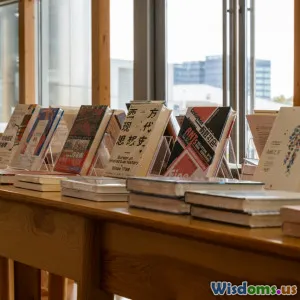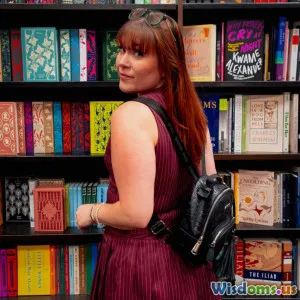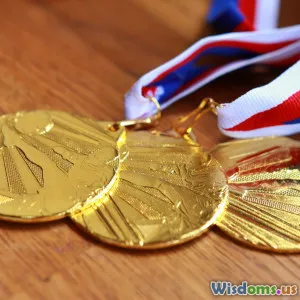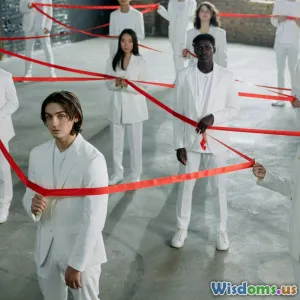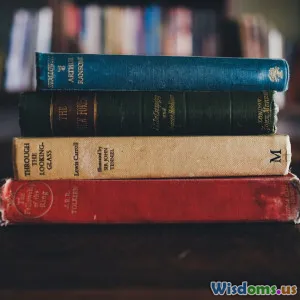
Surprising Facts About Nobel Laureates Banned Books and Controversies
9 min read Uncover the unexpected stories behind Nobel laureates whose works faced bans and controversies worldwide. (0 Reviews)
Surprising Facts About Nobel Laureates, Banned Books, and Controversies
Introduction
Nobel laureates are often celebrated as the paragons of intellectual achievement, their works hailed worldwide for profound insight and humanitarian contributions. Yet, many of these distinguished figures have been at the center of intense controversies, and some of their most acclaimed works have faced censorship or outright bans. This paradox—how globally honored literature, science, or peace efforts also trigger bans and disputes—offers a compelling insight into the cultural, political, and social tensions that resonate through history and today.
This article delves into the fascinating stories behind Nobel laureates whose works or personal lives sparked controversy or censorship, unveiling surprising and thought-provoking facts that illuminate the complex intersection of intellectual freedom, societal values, and geopolitical climates.
Nobel Laureates and the Phenomenon of Book Banning
The Context of Literary Censorship
Books authored by Nobel Prize-winning writers often challenge prevailing norms, tackle taboo subjects, or confront political systems. This naturally resulted in some works being banned or censored, frequently reflecting the struggles between literary expression and authoritarian or conservative societal forces.
Gabriel García Márquez: Magical Realism Meets Political Censorship
Gabriel García Márquez, the Colombian Nobel laureate in Literature (1982), is the quintessential example of banned Nobel laureate literature. His groundbreaking novel One Hundred Years of Solitude was banned or at least heavily restricted in several Latin American countries, including Guatemala and Colombia during military regimes. His vivid depiction of political corruption, violence, and failure to conform to official histories was viewed as subversive by authoritarian governments.
Insight: García Márquez famously stated, “What matters in life is not what happens to you but what you remember and how you remember it.” Yet ironically, some regimes sought to erase these memories and narratives in fear of their potent social impact.
Aleksandr Solzhenitsyn: Defiance Against Soviet Censorship
Awarded the Nobel Prize in Literature in 1970, Aleksandr Solzhenitsyn became a figure of immense controversy, largely because of his works exposing abuses in the Soviet Union. His seminal book, The Gulag Archipelago, detailing the brutal Soviet labor camp system, was banned in the USSR and circulated clandestinely.
The Soviet state viewed Solzhenitsyn’s revealed truths as dangerous subversion. Despite exile and censorship, his literature significantly contributed to the world’s understanding of Soviet repression and ultimately helped destabilize the USSR.
Doris Lessing’s Bold Social Commentary and Bans
British-Zimbabwean Nobel Laureate Doris Lessing (2007) paralleled many experiences related to censorship. Her works, like The Grass Is Singing, depicting complex social and racial realities in colonial Africa, were banned or heavily restricted in colonial regimes attempting to suppress challenging racial discourse.
She once remarked, “The only interesting answers are those which destroy the questions,” illustrating her awareness of provoking discomfort to induce societal reflections, sometimes attracting censorship.
Nobel Laureates’ Controversies Beyond Censorship
Beyond banned books, several Nobel laureates have been embroiled in controversies concerning their political views, personal beliefs, or the implications of their prizes.
Bob Dylan and the Debate Around “Literature”
When Bob Dylan was awarded the Nobel Prize in Literature in 2016 for his songwriting, it sparked a global debate. Was songwriting truly within the literary sphere traditionally reserved for novels, poetry, or essays?
- Critics argued Dylan’s songs are transient and oral, not fitting classic literary canons.
- Supporters highlighted his lyrical mastery, cultural influence, and narrative depth akin to literature.
Dylan’s ambivalence—he initially did not acknowledge the prize nor attend the ceremony—added layers to this controversy, highlighting shifts in defining ‘literature’ and democratizing artistic recognition.
Malala Yousafzai and Political Backlash
The Nobel Peace Prize awarded to Malala Yousafzai in 2014, the youngest laureate ever, triggered considerable political backlash in some regions. Her work advocating for girls’ education faced violent rejection by the Taliban and skepticism in certain conservative communities. Despite this, her recognition propelled global discussions on education rights and extremism.
This instance reveals how Nobel Prizes often draw political fire when exemplifying progressive causes against entrenched powers.
Günter Grass and the Late-Revealed Past
German author and Nobel laureate Günter Grass was lauded for his literary achievements, including the controversial work The Tin Drum, which confronted Nazi Germany’s legacy. However, in 2006, he shocked the world by revealing his wartime service in the Waffen-SS, sparking debates about his moral authority as a commentator on guilt and complicity.
This revelation subjected Grass to fierce criticism and illuminated the complexities of personal histories intertwined with public stature.
Patterns and Lessons From Nobel Laureate Controversies
The Role of the Nobel Prize in Amplifying Controversial Voices
The Nobel Prize elevated voices that might otherwise have been marginalized or silenced, particularly during oppressive regimes or tense socio-political environments. Laureates’ works often amplify inconvenient truths or innovative ideas triggering institutional resistance.
Censorship as a Reflection of Societal Anxiety
Book bans and suppression of Nobel laureates’ works underscore how literature and artistic expression act as mirrors to societal issues. Governments banning works often aim to suppress uncomfortable dialogues instead of confronting the underlying problems.
Evolution of Cultural Norms and Definition of Art
Award controversies—like Dylan’s—highlight expanding conceptions of culture and art, reflecting evolving societal values and redefining prestigious recognition boundaries.
Courage in Intellectual Independence
Nobel laureates often demonstrate immense bravery confronting political, cultural, or ideological opposition. Their persistence exemplifies the value of standing by one’s convictions, inspiring enduring societal progress.
Conclusion
The intriguing histories of Nobel laureates surrounded by banned books and controversies unveil how ideas perceived as revolutionary or disruptive frequently confront resistance before gaining recognition. These stories are more than curiosities; they highlight the crucial dialogue between freedom of expression and societal norms, the constant negotiation between the established status quo and visionary thought.
By exploring these surprising anecdotes and factoids, readers gain deeper appreciation for the nuanced challenges intellectuals face and the profound impact literature and ideas exert globally.
Ultimately, Nobel laureates not only represent individual genius but also embody the relentless human pursuit for truth and progress amidst adversity. Their experiences serve as an enduring reminder of the necessity to protect intellectual freedom and celebrate divergent voices that challenge, inspire, and transform our world.
References
- One Hundred Years of Solitude censorship history – Latin America Freedom of Expression Archives.
- Solzhenitsyn and the Soviet regime – Harvard University Soviet Archives.
- Doris Lessing and colonial literature bans – African Literary Journal, 2010.
- Bob Dylan Nobel controversy – The New York Times, 2016.
- Malala Yousafzai Nobel Peace Prize impact – UNESCO Education Reports, 2015.
- Günter Grass Waffen-SS revelation and public response – Deutsche Welle, 2006.
Uncovering these stories enriches our understanding of literature’s power and encourages vigilant defense of artistic freedom in any era.
Rate the Post
User Reviews
Popular Posts










